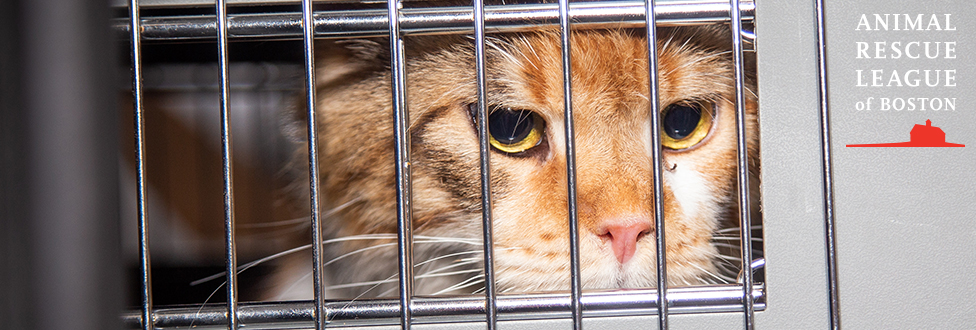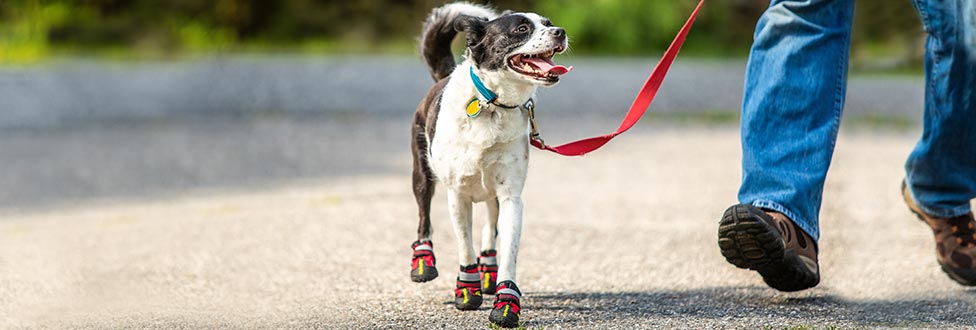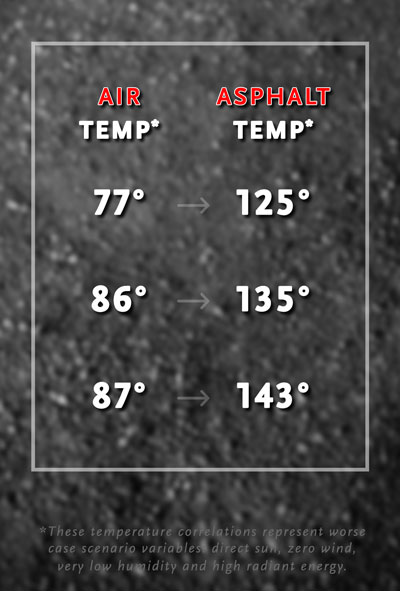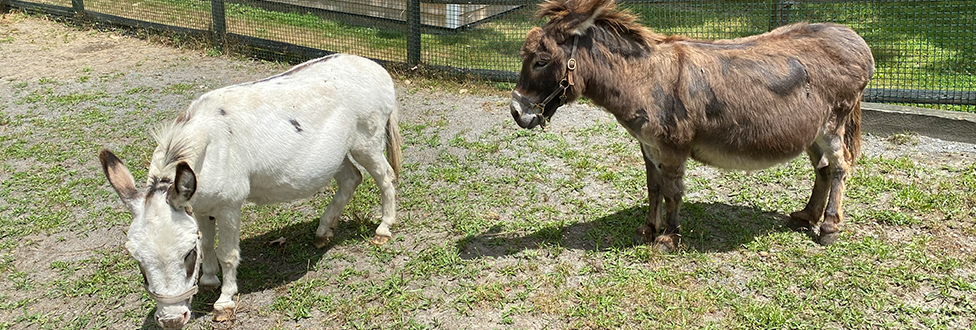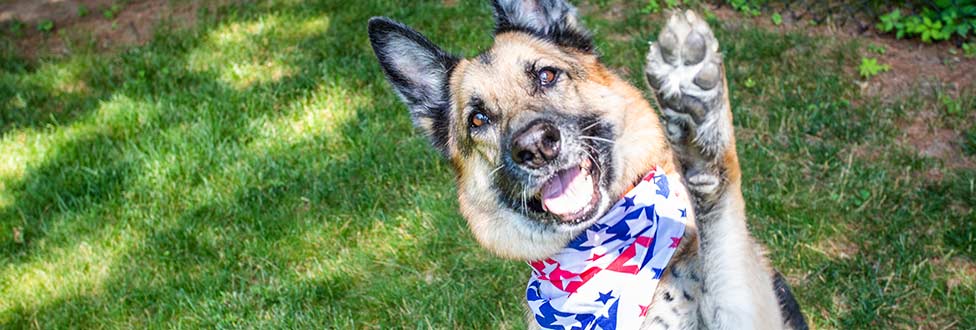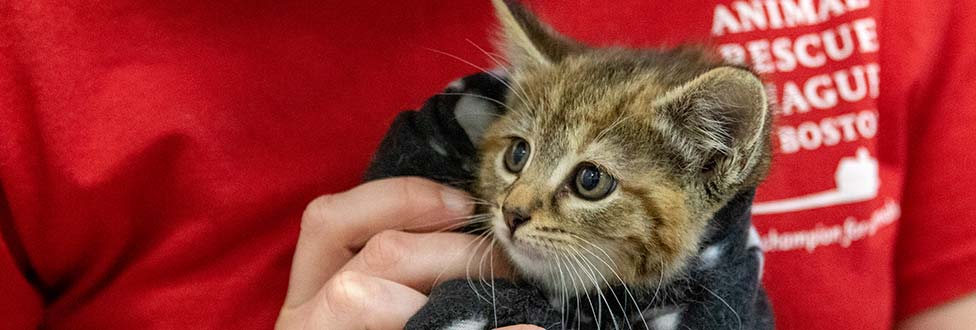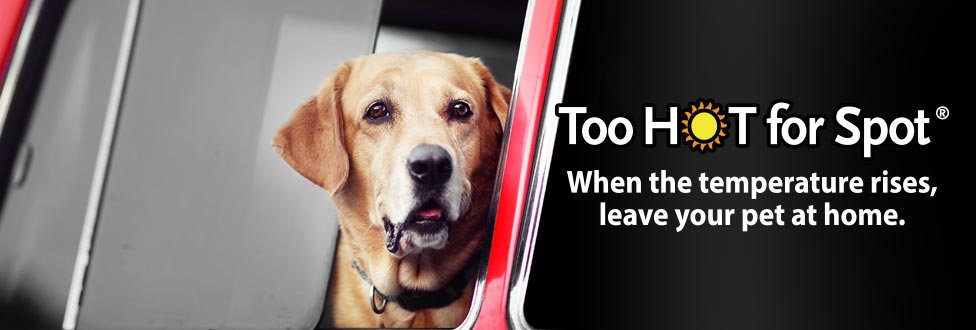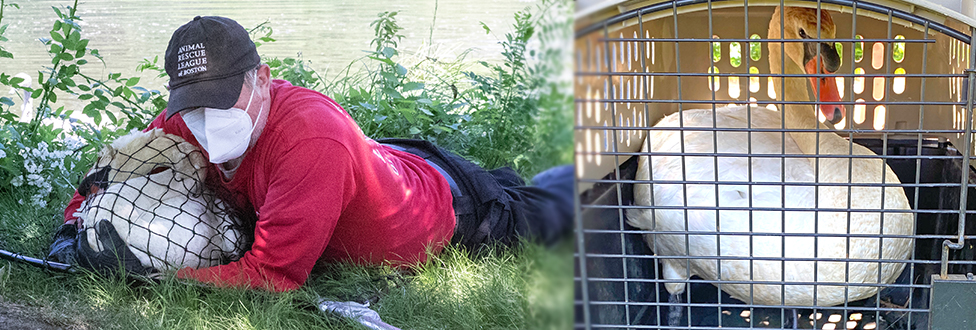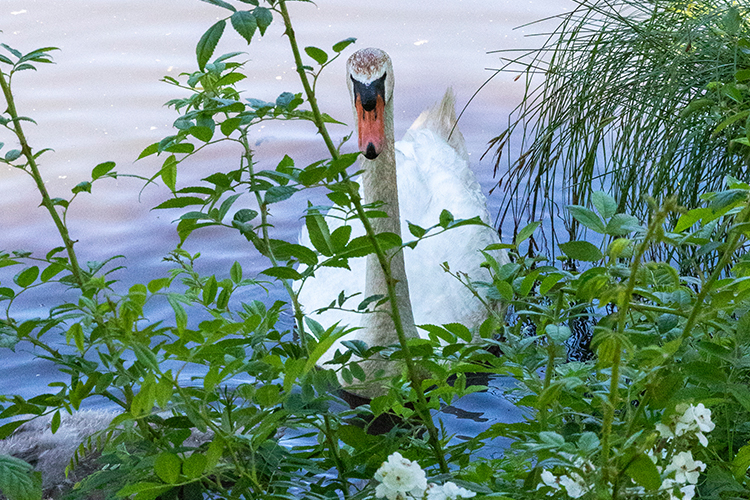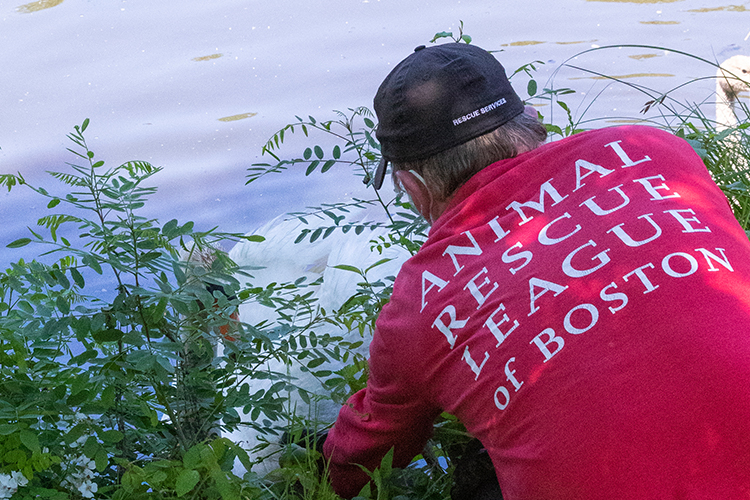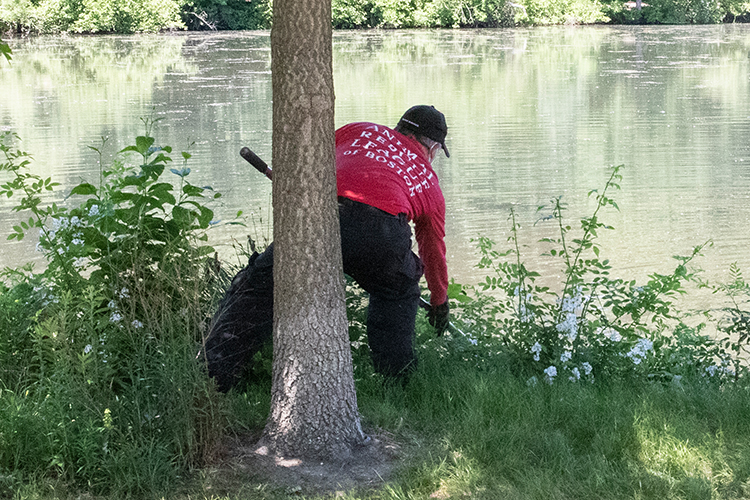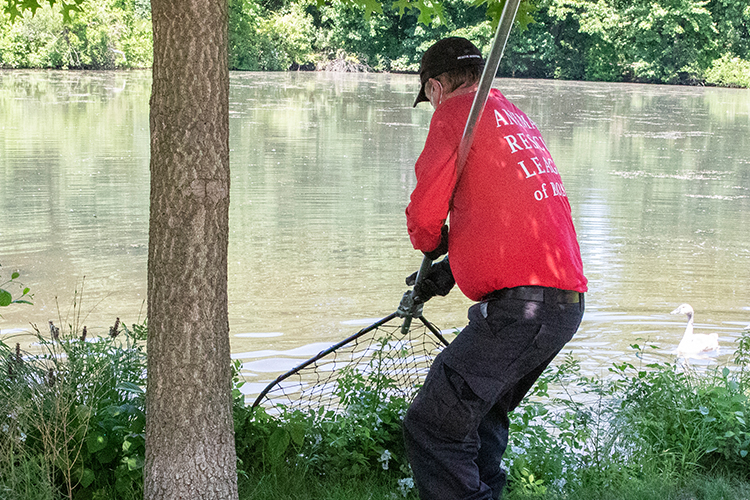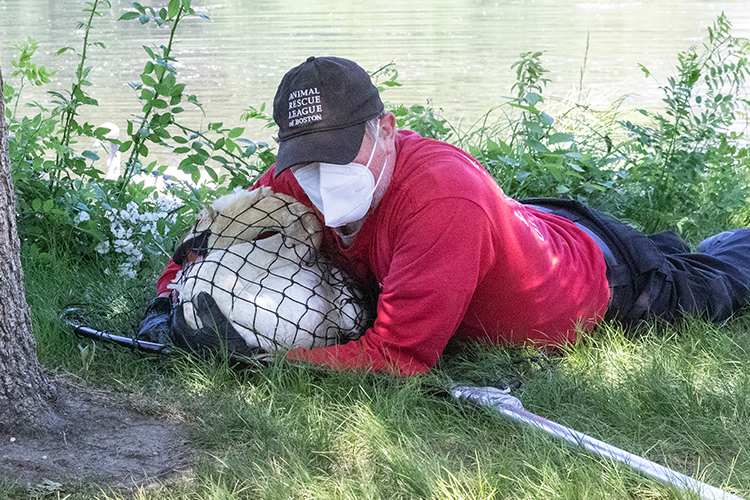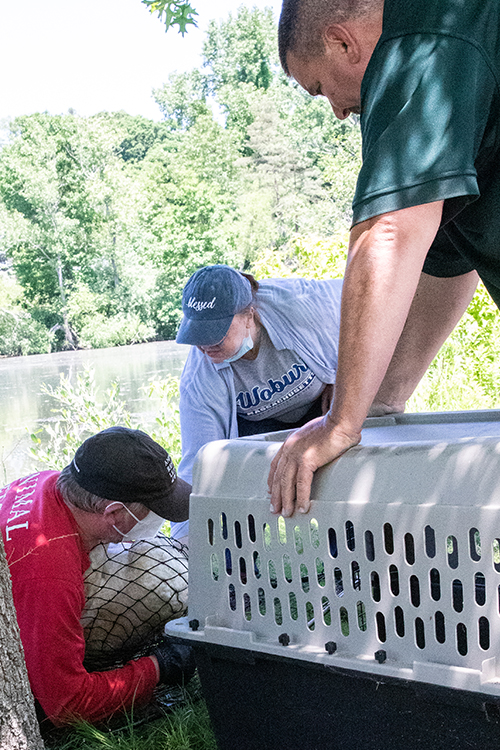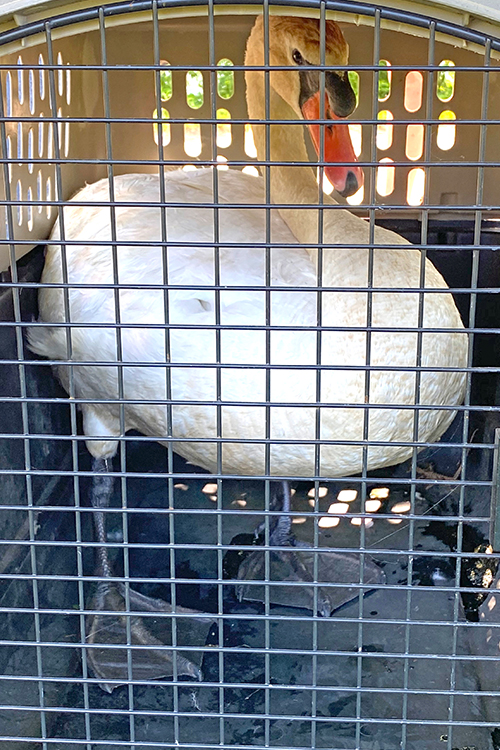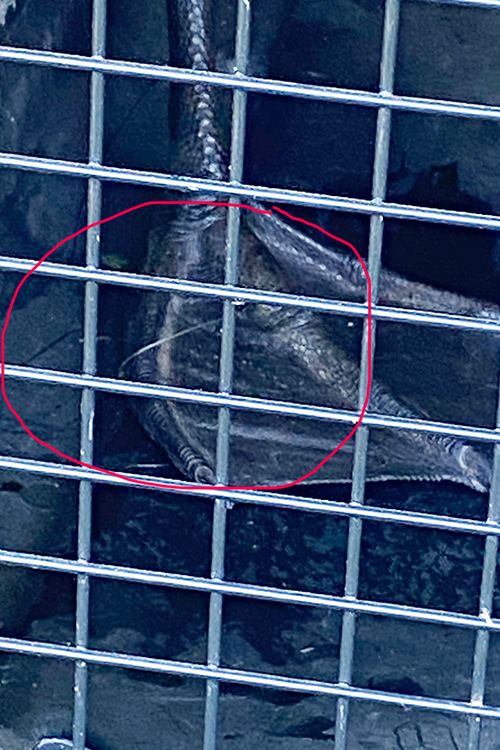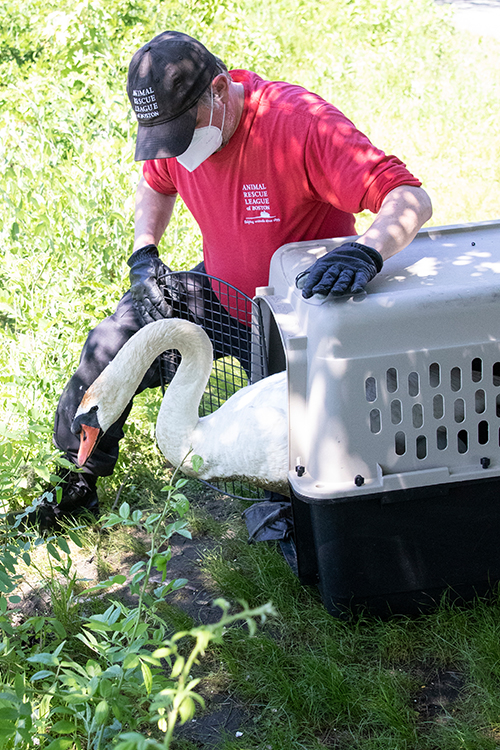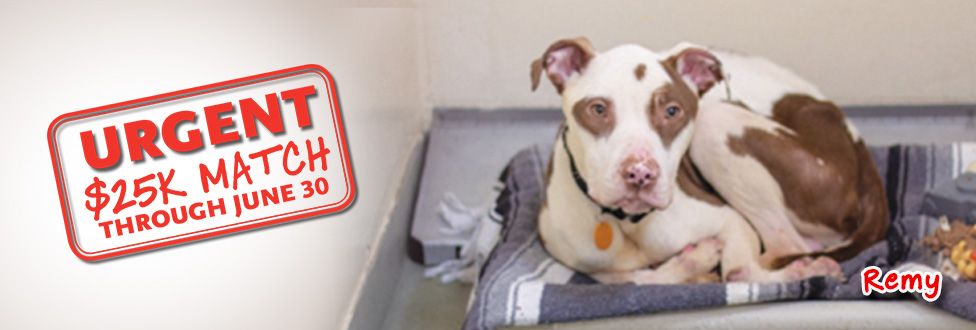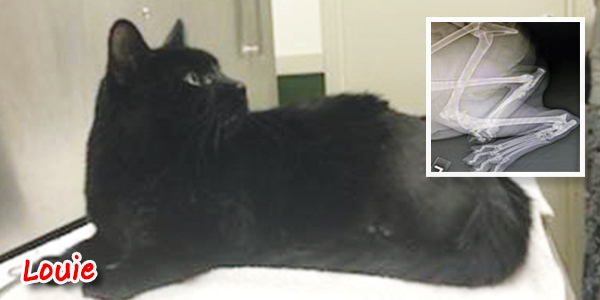Updated: ARL Caring for 80 Cats from Edgartown Law Enforcement Case
Breeder facing animal cruelty charges
This past week, the Animal Rescue League of Boston’s (ARL) Law Enforcement Department, along with Edgartown (Martha’s Vineyard) Police and Animal Control and Massachusetts Department of Agricultural Resources (MDAR) personnel, executed a search warrant at an Edgartown home and removed 65 cats from the property.
The cats were transferred to ARL’s care for veterinary care and will likely need weeks of treatment.
Update: Two litters of kittens have been born and ARL is now caring for approximately 80 cats and kittens.
The cat breeder, Jennifer Winsper, 48, will be charged with two counts of felony animal cruelty (MGL.272/77/B: Animal Cruelty by a Custodian).
ARL Law Enforcement inspected the property in 2019 following complaints of sick cats being sold off island. A similar complaint was lodged with Edgartown Animal Control in late June 2020. Edgartown Animal Control Officer Betsy Buck and MDAR personnel inspected the property following the complaint and determined the conditions were detrimental and dangerous for the animals.
ARL Law Enforcement sought and was then granted a search warrant for the property to take custody of the cats.
With the help of Edgartown Police and Animal Control and MDAR, 65 cats were safely removed from the property. Conditions inside the building where the cats were being kept had poor air quality, an overwhelming odor of animal waste, and was incredibly hot.
“We are very appreciative of the strong partnership we have with the Animal Rescue League of Boston,” said Edgartown Police Chief Bruce McNamee. “Their resources and expertise are invaluable to a small police department, especially one out here on Martha’s Vineyard, in cases like these.”
ARL wishes to thank Edgartown Police and Animal Control and MDAR for their assistance and resolve in rescuing these animals from difficult circumstances.
How You Can Help
An influx of this many animals causes a strain on ARL’s resources, and an emergency gift today can support:
- Veterinary care and rehabilitation for the sudden influx of animals that have suffered
- On-going investigations of cruelty to pursue justice for animals
- Emergency response when crisis strikes and animals are in dire need
Thank you for supporting ARL’s ongoing efforts to combat animals suffering cruelty, neglect and abuse.

